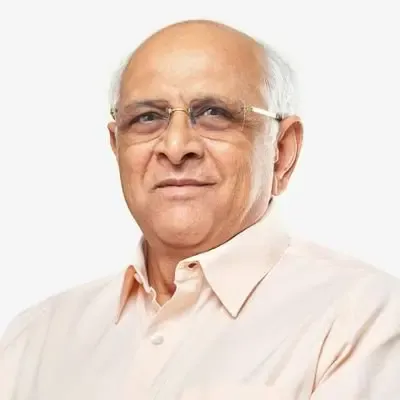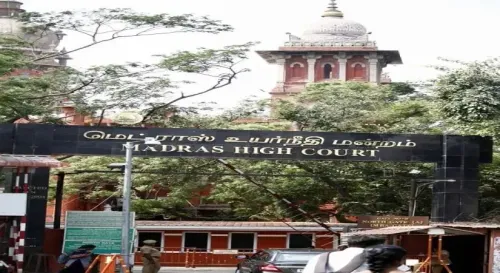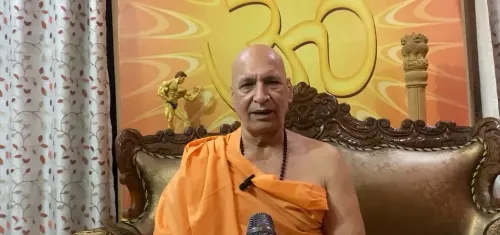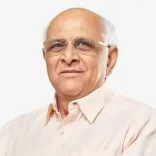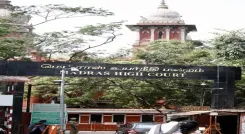How Did Gujarat Minister Send Off 28 Tribal Students on Their First Flight to ISRO?
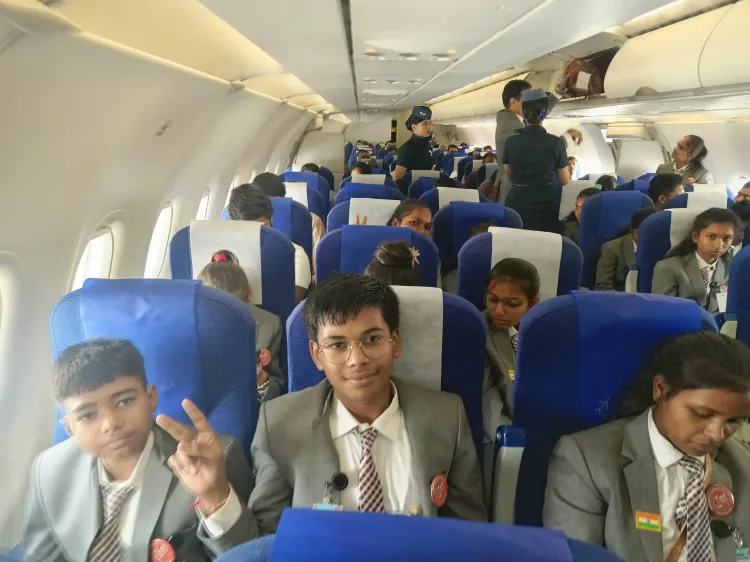
Synopsis
Key Takeaways
- First flight experience for 28 tribal students.
- Educational tour to ISRO’s satellite launch center.
- Encouragement from Gujarat’s Minister Mukesh Patel.
- Inspiration drawn from Dr. A.P.J. Abdul Kalam.
- Focus on promoting science and technology education.
Surat, Aug 10 (NationPress) The Minister of Tapi district in Gujarat, Mukesh Patel, was present at Surat Airport on Sunday to send off 28 tribal students who are taking their inaugural flight to Sriharikota as part of the ‘Tapi ke Taare’ initiative. These students, hailing from the science stream of 15 government schools in the region, are set to embark on an educational journey to ISRO’s satellite launch center from August 10 to 13.
During his visit to the airport, Patel engaged with the students about their first experience of air travel, aspirations for the future, and the myriad opportunities in the fields of science and technology. He encouraged them to absorb knowledge from ISRO scientists and engineers and to delve deeply into space research while nurturing their curiosity throughout the tour. The minister also motivated each student to compose a letter to the Prime Minister sharing their experiences at ISRO and the inspiration they glean from it.
Patel commended the Tapi district administration and the Tribal Development Department for implementing this pioneering initiative aimed at tribal students in the state. Drawing inspiration from the legacy of former President and “Missile Man” Dr. A.P.J. Abdul Kalam, he urged the students to pursue higher education and strive to bring honor to their villages, the state, and the nation.
The itinerary will also feature visits to a planetarium and zoological park in Chennai. Patel suggested that the students document their experiences into a souvenir booklet. He congratulated the “Best 28” students, noting a commendable representation of girls among them, and encouraged them to aspire even higher in their academic and career endeavors.
In attendance for the send-off were District Development Officer Ramniwas Bugalia, Project Administrator Jayantsinh Rathod, Assistant Information Director Sumit Gohil, along with other officials and family members.
The tribal communities in Gujarat, which constitute almost 15 percent of the state’s population, are integral to its cultural, ecological, and socio-economic landscape. Predominantly located in districts such as Dahod, Narmada, Tapi, Valsad, Dang, and parts of Banaskantha and Sabarkantha, these groups—including Bhils, Dublas, Warlis, and Gamits—boast rich traditions in art, music, and sustainable living practices intertwined with forests and agriculture. Their territories serve as habitats for significant biodiversity, making them essential contributors to conservation initiatives such as the Gir, Vansda, and Shoolpaneshwar sanctuaries.

